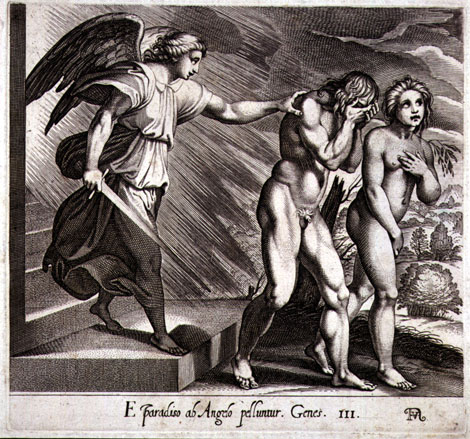Being one of the most eminent patriots, freedom fighters and poets of modern India, the “Nightingale of India” succeeds in capturing the true essence of the country in her poetic world. Sarojini Naidu’s poetry is an amalgamation of strong emotions of love, patriotism, heroism and intense lyricism. “The Gift of India” is a poem written in 1915 which embodies the spirit of patriotism for the motherland. In this poem, Mother India is proud of her brave and fearless sons who have made several great contributions to the country and on a global level.
The Gift of India: Summary
Stanza 1
“Is there ought you need that my hands withhold,
Rich gifts of raiment or grain or gold?
Lo! I have flung to the East and West
Priceless treasures torn from my breast,
And yielded the sons of my stricken womb
To the drum-beats of duty, the sabers of doom.”
In the poem’s opening stanza, Mother India raises a question to the world, asking if she has withheld any of her riches like clothes, grain or gold from them. She asks if she has denied any form of sacrifice to the world needed for a better tomorrow. She has promptly given away the courageous sons of the nation she calls her ‘Priceless treasures’ to the eastern and western countries without any hesitation to honour her international commitments to ensure harmony in the world. She talks of her brave sons who have readily accepted every challenge that came their way to cater to their international obligations, resulting from which they are lying buried in foreign soils. Mother India agreed to send the Indian soldiers to the land of chaos, death and destruction to protect the nation’s integrity and prestige. She has given up the sons born out of her womb to the world for the sake of the country’s esteem and commitments.
Stanza 2
“Gathered like pearls in their alien graves
Silent they sleep by the Persian waves,
Scattered like shells on Egyptian sands,
They lie with pale brows and brave, broken hands,
They are strewn like blossoms mown down by chance
On the blood-brown meadows of Flanders and France.”
In the second stanza, Mother India laments the death of the heroic soldiers who fought in the war with the utmost valour and zeal and are now lying buried in their graves in foreign lands like pearls in their shells. Over one million Indian troops from Britain’s colonial empire had served the British Army in the First world war, out of which around 75,000 soldiers died in foreign lands. Some of them are buried along the tranquil Persian sea, while others are scattered like shells on the Egyptian sands. They lie pale and colourless with hands that have been broken on the battlefield. There are other brave soldiers whose lifeless bodies lie scattered like flowers in the blood-tainted meadows of Flanders and France. The bleeding Indian soldiers chose not only to sacrifice their blood and sweat for their motherland but also to prove that India has never backed out from its promised commitment. The selfless sacrifice of the Indian soldiers shows that India has always lived up to its expectations by proving its loyalty to its global allies.
Stanza 3
“Can ye measure the grief of the tears I weep
Or compass the woe of the watch I keep?
Or the pride that thrills thro’ my heart’s despair
And the hope that comforts the anguish of prayer?
And the far sad glorious vision I see
Of the torn red banners of victory?”
Mother India asks rhetorical questions to express the fact that there is no possible way in which the world can measure the intensity of her grief. The world cannot possibly comprehend the misery and suffering that she had to face at the loss of her martyred sons. Even though she is torn by the sorrow in her heart, she is exhilarated by a sense of pride offered by the soldiers. Her pride in the heroism and spirit of her sons overwhelms her feeling of despair and sorrow. She bears immeasurable pain and anguish in her heart at the thought of parting ways with her sons. However, she prays for a world where there is no place for fights, hatred or terror. And the idea of a better world in which peace and harmony are restored gives her hope. Here, she is anticipating their victory, which will put an end to the cruelties in the world. At the same time, she is saddened by the thought of the soldiers who are going to sacrifice their lives to bring glory to the country. This whole stanza has an optimistic note suggesting that the sacrifice of today shall succeed in making a better tomorrow.
Stanza 4
“When the terror and the tumult of hate shall cease
And life be refashioned on anvils of peace,
And your love shall offer memorial thanks
To the comrades who fought in your dauntless ranks,
And you honour the deeds of the deathless ones,
Remember the blood of thy martyred sons!”
In the final stanza, Mother India vehemently expresses her sense of pride in the achievements of the Indian soldiers. Even though she has suffered a lot, a hope for a better future in which peace is restored gives her satisfaction. The poem ends on a note of optimism and hope. Mother India hopes that when the world of terror and hate shall cease, no new world will be formed in which peace and harmony would bring joy in people’s lives. Mother India expects the world to respect and remember the soldiers who fought bravely in the wars and sacrificed their lives for a peaceful future. She also hopes that the world will recognize the contribution of the Indian soldiers. She wants people to pay their homage and gratitude to the soldiers to be immortalized in the history of the world for their valour and heroism. Other than The Gift of India: Summary, you can refer to The Gift of India: Analysis for a better understanding of the lesson.
Some online learning platforms provide certifications, while others are designed to simply grow your skills in your personal and professional life. Including Masterclass and Coursera, here are our recommendations for the best online learning platforms you can sign up for today.
The 7 Best Online Learning Platforms of 2022
- Best Overall: Coursera
- Best for Niche Topics: Udemy
- Best for Creative Fields: Skillshare
- Best for Celebrity Lessons: MasterClass
- Best for STEM: EdX
- Best for Career Building: Udacity
- Best for Data Learning: Pluralsight
















